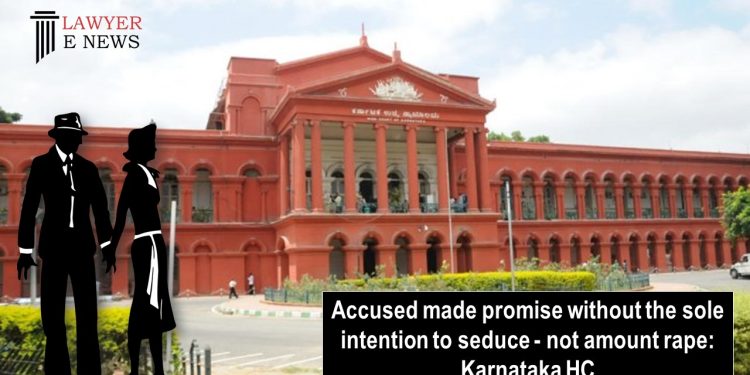Accused made promise without the sole intention to seduce – not amount rape: Karnataka HC

In a recent ruling titled Vijayendra Singh Vs. State of Karnataka, it was said that an act would not constitute rape if the accused did not make the promise with the express purpose of luring the prosecutrix into engaging in sexual activity.
Facts: In this instance, the second respondent and petitioner establish a relationship after becoming acquainted through a mobile application. In his profile, the petitioner indicated that he was not married. The complainant learns afterwards that the petitioner was previously married. The complaint was filed for offences covered by Sections 376, 504, 418, and 420 of the IPC.
The High Court had to consider whether or not the petitioner could be held accountable for the offence covered by Sections 376, 504, 418, and 420 of the IPC.
The Maharashtra State v. Pramod Suryabhan Pawar case, in which it was determined that “A breach of a pledge cannot be claimed to be a fraudulent promise, was cited by the High Court. A false promise must have been made with no intention of being kept at the time it was made in order for it to be proven false. In accordance with Section 375, a woman’s “permission” is invalidated if she chose to engage in the specified act based on a “misconception of fact.”
The petitioner and respondent had a consensual relationship for more than 2 years and 5 months, according to the bench, hence proceedings against the petitioner for offences punishable under Section 376 of the IPC cannot be upheld for that reason. Given the foregoing, the High Court granted the petition.
Mr. Vijayendra Singh
Vs
State of Karnataka





